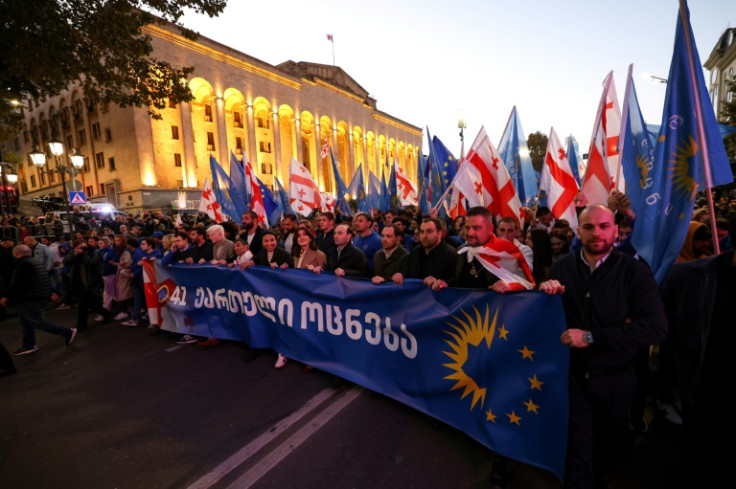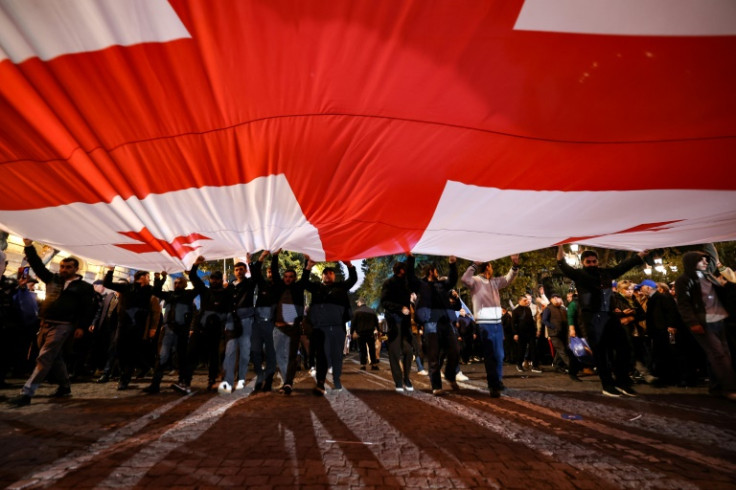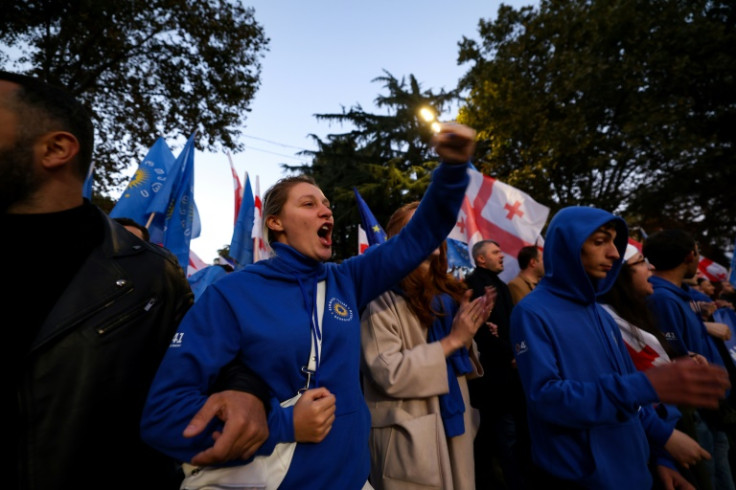Georgia Ruling Party Stages Mass Rally Ahead Of Key Vote

Georgia's ruling party held its final campaign rally on Wednesday ahead of crucial elections pitting it against a pro-Western opposition union which accuses the government of increasing authoritarianism.
Saturday's parliamentary elections are seen as a vital test for EU-candidate Georgia's democracy and long-held European aspirations.
The ruling Georgian Dream party bussed tens of thousands of people, including public servants, from across the country to a campaign rally at the capital Tbilisi's central Freedom Square, footage from several independent local TV stations showed.
Demonstrators beat drums and shouted "Long live Georgian Dream!" as they marched down Tbilisi's tree-lined Rustaveli Avenue towards the venue, according to an AFP reporter at the scene.
The column was led by Tsotne Ivanishvili, the son of powerful oligarch Bidzina Ivanishvili who controls the ruling party and is widely seen as the man in charge in Georgia.
"By 2030, we will become a member of the European Union -- with dignity, with respect for Christianity, the Church, morality, independence and sovereignty," Prime Minister Irakli Kobakhidze told the crowd of some 55,000 people.
"The injustice of EU politicians and officials does not suit Europe, the rejection of Christian dogmas does not suit Europe, LGBT propaganda does not suit Europe and disrespect for others' sovereignty does not suit Europe."
On Sunday, tens of thousands took to the streets for a pro-Europe rally in Tbilisi.
Georgian Dream's campaign has centred on a conspiracy theory about a "global party of war" that controls Western institutions and is seeking to drag Georgia into the Russia-Ukraine war.
"If the opposition comes to power, they will start a war (with Russia), that's why we support Georgian Dream. It is the guarantor of peace," said Tamila Siradze, 70, one of the rally's participants.
In power since 2012, Georgian Dream initially pursued a liberal pro-Western policy agenda, but over the last two years has reversed course and been accused of moving closer to Moscow.
Brussels froze Georgia's EU accession process earlier this year after Georgian Dream lawmakers passed a controversial "foreign influence law" targeting civil society.
The adoption of the measure -- criticised as a Kremlin-style law to silence dissent -- sparked weeks of mass street protests and also prompted Washington to impose sanctions on dozens of Georgian officials.
Earlier this month, EU foreign policy chief Josep Borrell cautioned that Georgian Dream's actions "signal a shift towards authoritarianism".
Opinion polls suggest opposition parties are likely to garner enough votes in Saturday's election to form a coalition government and supplant the ruling party.
Analysts have warned of the risk of turmoil if Georgian Dream attempts to hold onto power regardless of the vote's outcome.


© Copyright AFP 2024. All rights reserved.











